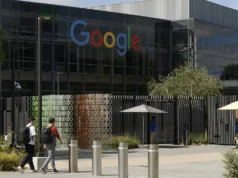
Artificial intelligence (AI) is rapidly evolving and has the potential to transform many aspects of our lives, from the way we work and learn to the way we diagnose and treat diseases. King Charles has spoken out about the importance of responsible AI development and the need to ensure that its benefits are shared by all.
Key highlights:
- AI is rapidly evolving and has the potential to transform many aspects of our lives, including healthcare, climate change, and education.
- King Charles has spoken out about the importance of responsible AI development and the need to ensure that its benefits are shared by all.
- There are a number of challenges that need to be addressed before AI can be safely and widely deployed, such as bias, security, and job displacement.
AI in healthcare:
AI is already being used in healthcare to improve the diagnosis and treatment of diseases. For example, AI-powered systems can now detect cancer cells in medical images more accurately than human doctors. AI is also being used to develop new drugs and treatments, and to personalize healthcare plans for individual patients.
AI in climate change:
AI is also being used to address climate change. For example, AI-powered systems are being used to develop renewable energy sources, to improve energy efficiency, and to reduce greenhouse gas emissions. AI is also being used to predict and mitigate the effects of extreme weather events.
AI in education:
AI is also being used to improve education. For example, AI-powered systems can now provide personalized learning experiences for students, and they can help teachers to identify and support students who are struggling. AI is also being used to develop new educational materials and to create new learning opportunities for students outside of the classroom.
Challenges of AI development:
There are a number of challenges that need to be addressed before AI can be safely and widely deployed. One challenge is bias. AI systems are trained on data, and if that data is biased, then the AI system will also be biased. This can lead to discrimination against certain groups of people.
Another challenge is security. AI systems are complex, and they can be vulnerable to attack. Hackers could potentially exploit AI systems to steal data, to cause damage, or to spread misinformation.
Finally, there is the challenge of job displacement. As AI becomes more sophisticated, it is likely to automate many tasks that are currently performed by humans. This could lead to widespread job displacement, and it is important to have policies in place to support workers who are displaced by AI.
AI has the potential to transform many aspects of our lives for the better. However, it is important to be aware of the challenges associated with AI development and to work to ensure that AI is used in a responsible and ethical way.
King Charles has said that AI has the potential to “completely transform life as we know it.” AI is already being used in a number of ways, including healthcare, climate change, and education. However, there are a number of challenges that need to be addressed before AI can be safely and widely deployed, such as bias, security, and job displacement. It is important to be aware of these challenges and to work to ensure that AI is used in a responsible and ethical way.











